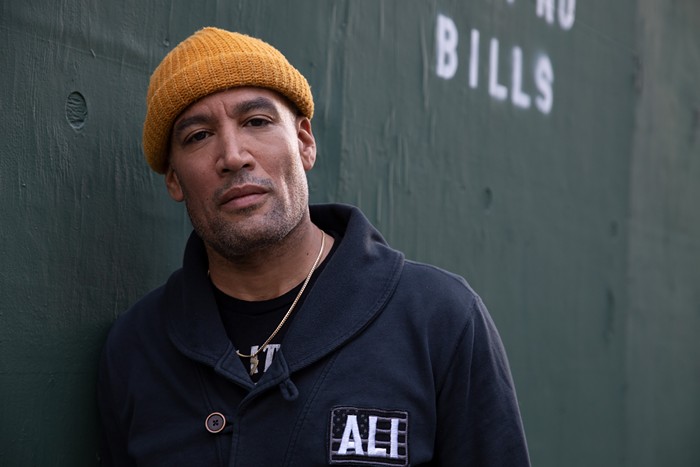THE WAY WE QUALIFY female musical genius is strange and selective. The hoops and hopes for female musicians are an entirely different sort of preferential detail than we ask or access for boys. With girl genius, there is a high value on accidental—you'd think critics prefer it that way. Girls are often coming to music through the side or back doors (still)—if they are virtuosos they often originate from what is still the standard musical training for young women: "opera trained"/piano/violin since the womb. How the rest get to the point of putting their inspirations and thoughts to tape/stage has often involved DIY ingenuity, forgoing the traditional path that may or may not have been available—by using what was at their disposal and working solo to cast their vision in scrappy or hi-fi forms.
And this is what gets portrayed as accidental. As if women stumbled into their own greatness like a bear trap. Even though their efforts may amount to taking the long way around, we still see the girl genius as a wild and unlearned, less-purposed proxy to her male counterparts because she's eschewed unappealing tradition, because she toiled without beginner's shame. It's not a terrible lot, to be supposed as guileless—at least in comparison to the judgment reserved for female artists who appear to want stardom and success. Humble without knowledge of the dimensions of their power is clearly the preference.
Merrill Garbus is one of the amateur genius gals. tUnE-yArDs is her solo outfit. She has a big boom of a soulful voice that she swings loud, like she is unafraid of it (or anything). On "Hatari," one of the singles off her debut (BiRd-BrAiNs), Garbus yodels and piles more yodels on top—like dueling Tarzans—her voice undulating across the wildness. Her primary instrument is the ukulele, but it doesn't usually sound like one. It sounds majestic and sensitive, more like a kora or a teeny tiny harp, than the sharp, toy-like tone you normally associate with a ukulele. Garbus' influences come from her life as she has lived it: time she spent in Nairobi (she sometimes sings in Swahili), theater and puppetry, the pathos of her mid-20s, and the joy of coming through the other side of that. BiRd-BrAiNs sounds alive with purpose and discovery.
Garbus made her record as an assemblage, taking a small digital recorder and then using her sounds as samples, parsing and processing and pasting them into a pastiche to build a song. She was a nanny at the time, and she uses a kiddo cough as a punctuating bit of beat, a worrying sort of sample that draws your attention immediately and also functions as a hat tip to Timbaland's cooing baby in Aaliyah's "Are You That Somebody?" There is a handful of toddler talk and child sweetness that appears on BiRd-BrAiNs, anchoring it as feminist work. Usually the only "baby" on rock albums is an adult woman, and she's being sung about.
Despite all this intent, tUnE-yArDs fits the bill for what is acceptable in girl geniuses, and the homespun, visceral aspects have played well in the press and on blogs. It is DIY kitchen clatter—what she did to order and arrange the record, to build what sounds like a pen being tossed into a metal trashcan into part of what becomes an artfully arranged mini symphony of day-to-day sounds. All these small, familiar sounds are put to work in a semblance of a huge musical whole. Sure, BiRd-BrAiNs is a rejection of a guitar, a rejection of rock-and-roll virtuosity as it stands, but what Garbus has done with her innovative fury is more akin to Rick Rubin cutting landmark hiphop sides in his dorm room. She's inventing new possibilities.



















